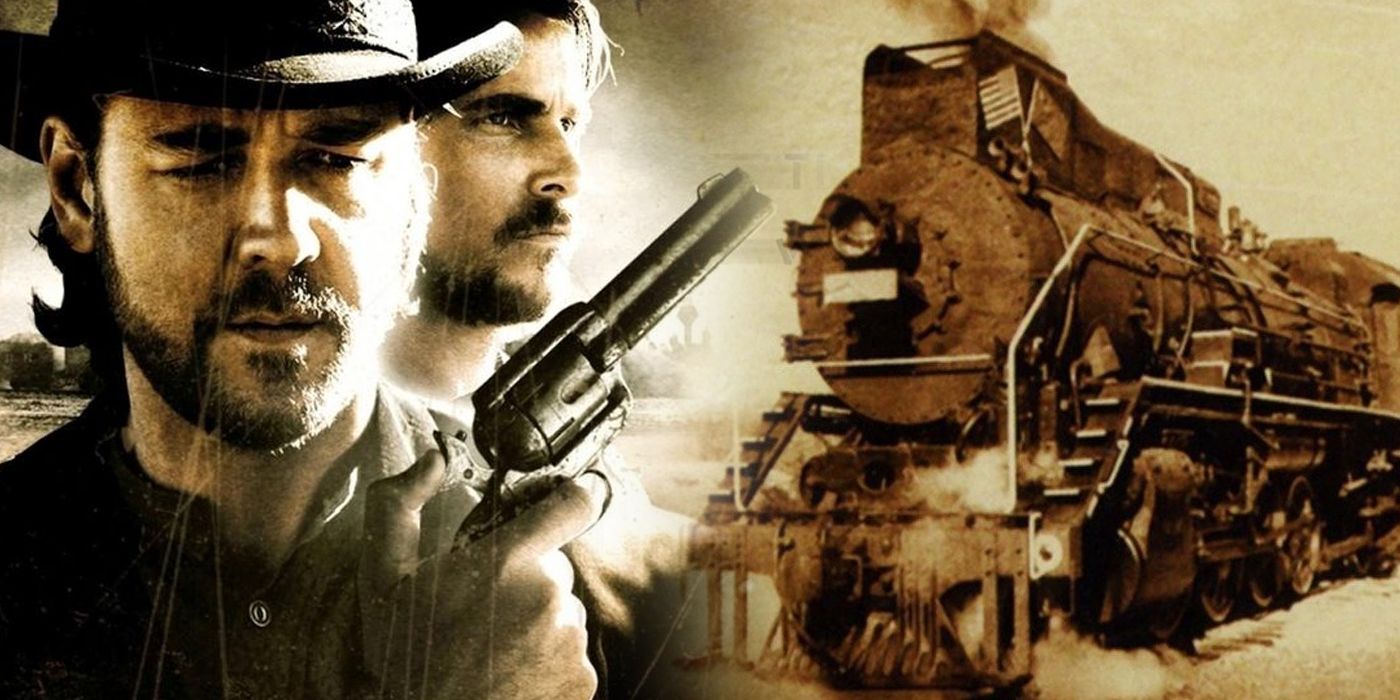American Western films are built on the backs of early samurai movies, so remakes are nothing new to the genre. In 2007, James Mangold’s 3:10 to Yuma emerged guns-blazing, another modern remake of a classic western. It aimed to pick up the pace of the original film while preserving the complex conversation on respect and morality therein and did so with relative success. Where remakes like True Grit adapt central characters to make them more palatable, eventually detracting from raw and complicated endings, 3:10 to Yuma elevates the archetypal roles of Ben Wade and Dan Evans to make for one of the greatest endings to any modern Western.Where the original film juxtaposed brutal Western violence with the Code of the West, 2007’s remake is far more character-focused. Crowe’s portrayal of Ben Wade is seemingly much crueler than Glenn Ford’s, and Christian Bale’s Dan has his overzealous son breathing down his neck where Van Heflin’s did not. The original explored nuances of morality in the Wild West more subtly, but the remake’s fast-paced action leads to a more decisive resolution. 3:10 to Yuma’s closing scene is a heavy departure from the feel-good ending of the original, giving viewers a clearer view of each gunslinger’s end and, through that, their respective ways of life.The remake’s Ben Wade is much darker than the original. Glenn Ford’s portrayal seemed hard but fair, killing in cold blood while maintaining respect for the dead. Russell Crowe’s take on the outlaw is a little grittier and far less likable, taking out a crew member in cold blood to teach the rest a lesson. He shows moments of respect to other characters throughout the film, but he’s always pretty up-front about being the bad guy. On the other hand, Dan Evans is characterized more in the opposite direction.
American Western films are built on the backs of early samurai movies, so remakes are nothing new to the genre. In 2007, James Mangold’s 3:10 to Yuma emerged guns-blazing, another modern remake of a classic western. It aimed to pick up the pace of the original film while preserving the complex conversation on respect and morality therein and did so with relative success. Where remakes like True Grit adapt central characters to make them more palatable, eventually detracting from raw and complicated endings, 3:10 to Yuma elevates the archetypal roles of Ben Wade and Dan Evans to make for one of the greatest endings to any modern Western.
Where the original film juxtaposed brutal Western violence with the Code of the West, 2007’s remake is far more character-focused. Crowe’s portrayal of Ben Wade is seemingly much crueler than Glenn Ford’s, and Christian Bale’s Dan has his overzealous son breathing down his neck where Van Heflin’s did not. The original explored nuances of morality in the Wild West more subtly, but the remake’s fast-paced action leads to a more decisive resolution. 3:10 to Yuma’s closing scene is a heavy departure from the feel-good ending of the original, giving viewers a clearer view of each gunslinger’s end and, through that, their respective ways of life.
The remake’s Ben Wade is much darker than the original. Glenn Ford’s portrayal seemed hard but fair, killing in cold blood while maintaining respect for the dead. Russell Crowe’s take on the outlaw is a little grittier and far less likable, taking out a crew member in cold blood to teach the rest a lesson. He shows moments of respect to other characters throughout the film, but he’s always pretty up-front about being the bad guy. On the other hand, Dan Evans is characterized more in the opposite direction.
#Western #Remake #Genres #Endings
Note:- (Not all news on the site expresses the point of view of the site, but we transmit this news automatically and translate it through programmatic technology on the site and not from a human editor. The content is auto-generated from a syndicated feed.))



